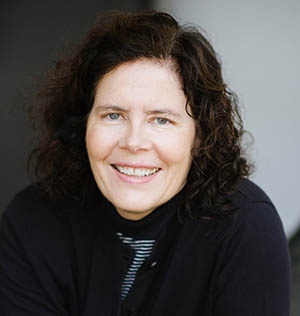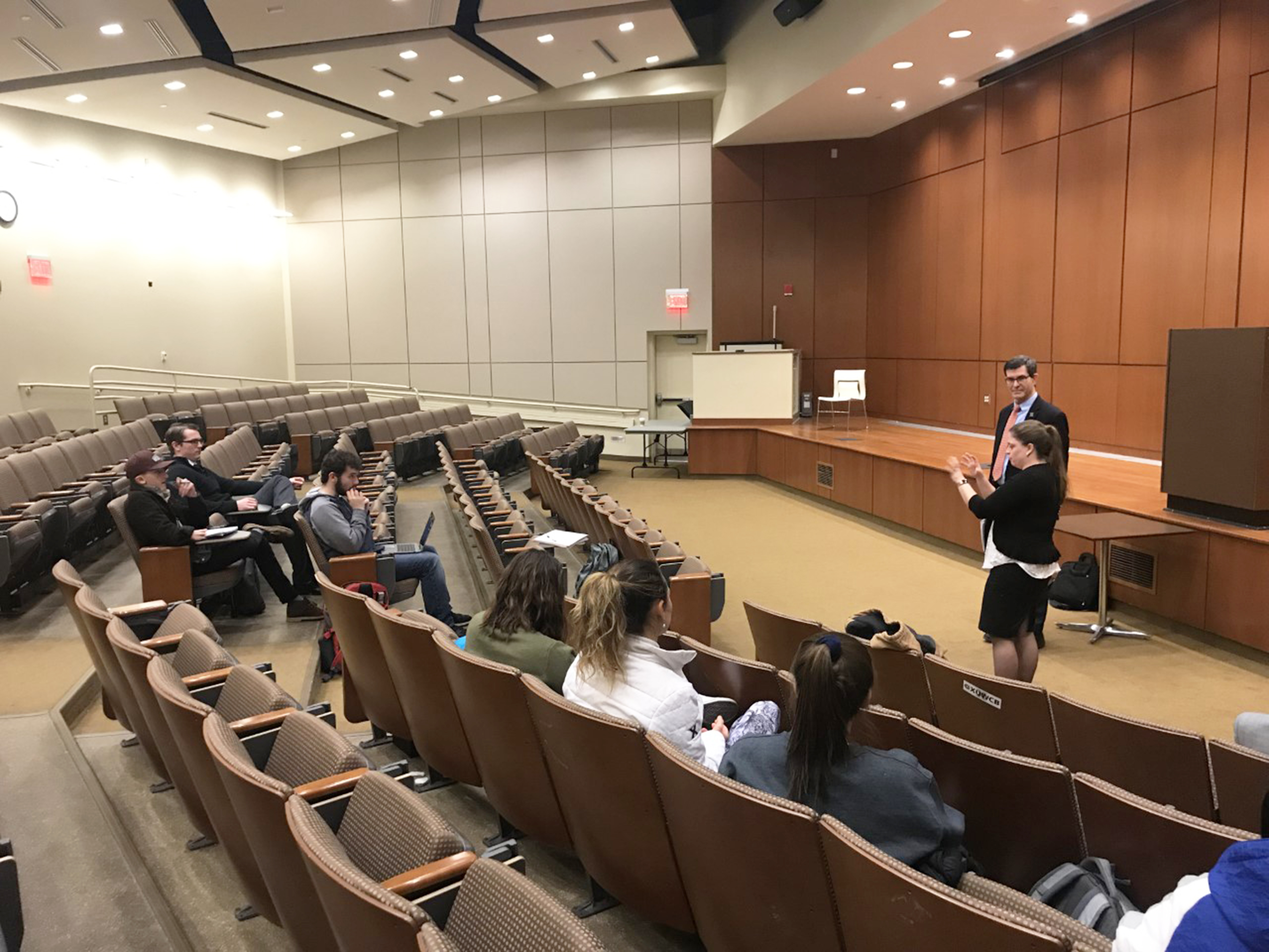Author and scholar, Nancy Isenberg, discusses the origin of the class divide
By Aleya Justison | Staff Writer

Xavier’s Ethics/Religion and Society (E/RS) program continued its “Conversations Across the American Divide” series on Monday night. As the second part of this year’s E/RS series, students and faculty piled into Kennedy Auditorium to listen to Nancy Isenberg’s presentation, “The Rural Roots of Class Politics in America.”
The author of White Trash: a 400-Year History of the Un-told Story of Class in America, Isenberg was invited to come speak as a part of “Conversations Across the American Divide,” a series that seeks to explore the reasons and potential solutions for conflict in society. As stated on the E/RS website, “This country has never been free of contention and disagreement, and it never should be, but the growing antagonism has made it increasingly difficult to engage in civil and reasonable discussions.”
The organizers of the series, which runs until 2021, hope to bring engaging speakers from diverse backgrounds to Xavier so as to begin open dialogue about difficult issues.
Isenberg fits this description as both a scholar and writer, having published six books in her lifetime while also working as a history professor at Louisiana State University.
Her 2016 book, White Trash, examines the origin of class division and conflict in America. Her previous works, which critically explore historical figures and time periods, include Sex and Citizenship in Antebellum America, Fallen Founder: the Life of Aaron Burr and Madison and Jefferson.
As is customary at an E/RS panel, the event was separated into three sections: a 30-minute dialogue given by Isenberg, a Xavier student and faculty panel and concluding questions and comments.
Isenberg’s talk delved into a history that encompassed the struggles and discrimination faced by those who experience poverty. Her main message was to show how, as a country, America has intentionally degraded and dismissed the poor, particularly poor Whites. She portrayed class as a reflection of wealth and proposed that Americans historically see class in a person’s physical appearance, geographical location and breeding.
Thus, this discussion evolved into the history of stereotypes surrounding poor white Americans and the effects of this discrimination today, examining the origins of terms like “white trash” or “redneck.”
Isenberg hopes that her work will reshape the way Americans talk about class and view people in poverty. “Class language is never an isolated category,” she said. “It is always in comparison with something else.”
The need for open dialogue seemed to be a common theme among the panelists: Dr. John Fairfield of the history department, Dr. Kandi Stinson of the sociology department and Philosophy, Politics and the Public students Briana Ruzanka and Isabella Serna. The panelists shared their reactions to the talk and discussed how it applies to life at Xavier.
“The Xavier bubble is objectively a politically apathetic space,” Ruzanka said when discussing her experience as a Manresa leader. She noticed a significant withdrawal of input from students when it came to discussing politics and views.
The issue of class differences within Xavier was highlighted by Stinson, noting that 20% of students on campus reported experiencing food insecurity and that the number is increasing, showing that poverty is not only outside of the Xavier experience.
All those in attendance of the event were given a free copy of Isenberg’s book. The next E/RS event scheduled as part of “Conversations Across the American Divide” will be in February.













You must be logged in to post a comment.